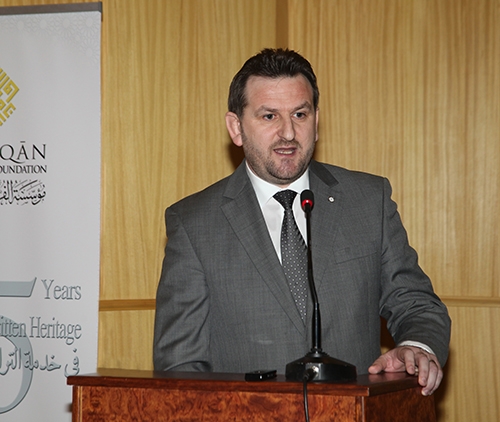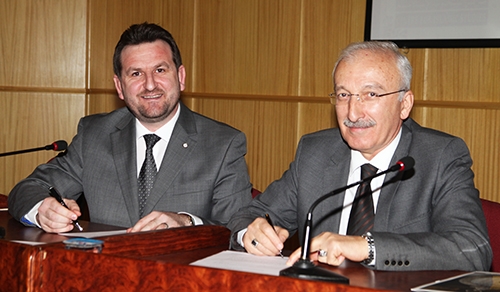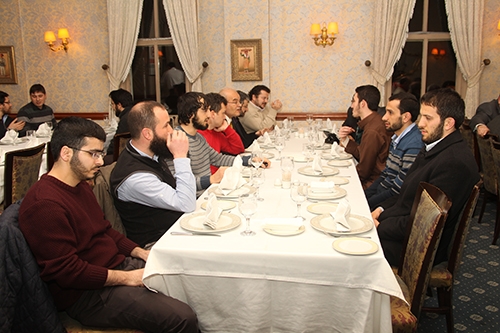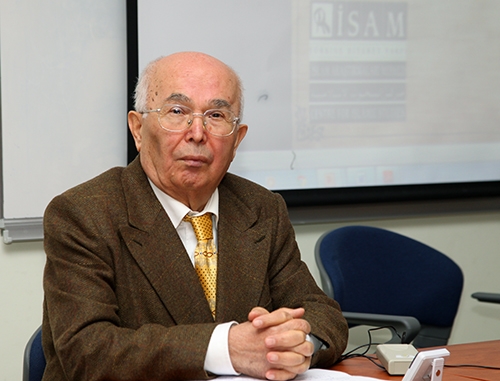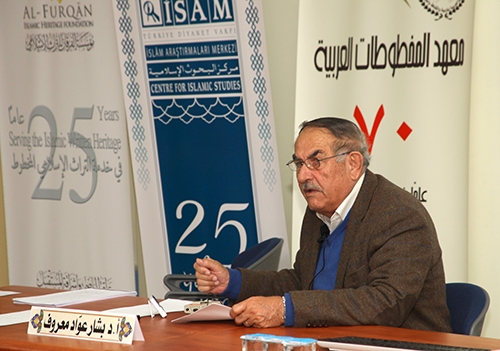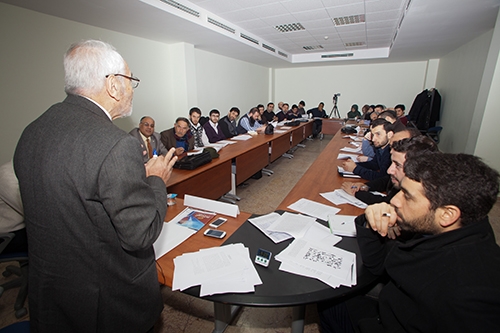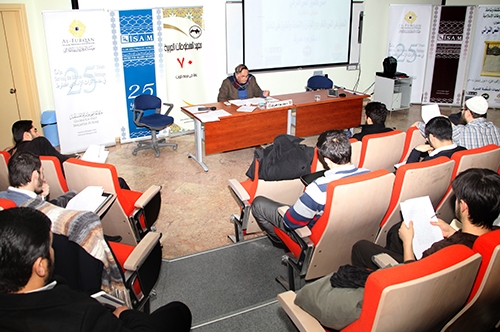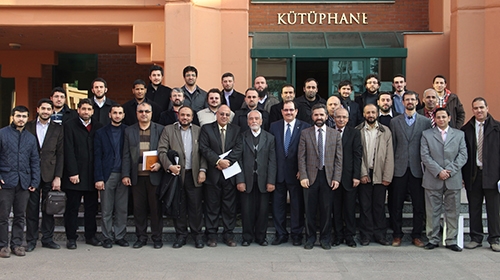In the spirit of co-operation between Al-Furqān Islamic Heritage Foundation, the Centre for Islamic Research (ISAM) in Istanbul and the Institute of Arabic Manuscripts in Cairo, Al-Furqān Foundation organised a training course on the critical editing of manuscripts, delivered by a group of scholars working in the field. It was held in the Islamic Research Center in Istanbul.
The idea behind the course was to empower Turkish and Arab researchers in the practice of critical editing, based on appropriate academic methodology, encompassing both theoretical and practical aspects. Workshops were also provided. The course lasted ten days between 27th January and 6th February 2014.
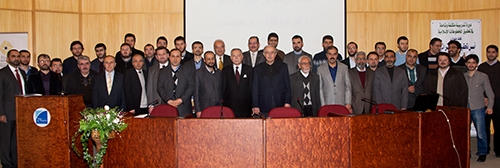
The opening session was attended by a group of professors with an interest in manuscripts. Al-Furqān was represented by Prof. Ekmeleddin Ihsanoğlu, member of the Board of Directors of Al-Furqān, Mr. Sali Shahsivari, Managing Director of Al-Furqān, and Mr. Mohamed Drioueche, Head of Projects and Publications Department at Al-Furqān.
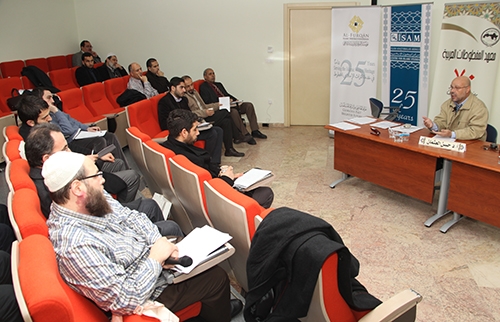
Prof. Mehmet Akif Aydin, Director of the Islamic Research Center (ISAM), spoke first about the Center and the Islamic Encyclopaedia, referring to a celebration, held on the 25th January, which marked the completion of the Encyclopaedia project, as well as about the Centre’s new project “later times of the Islamic civilization”. Prof. Aydin announced the Centre’s efforts in seeking to prepare the necessary skills base, including manuscript specialists.
Prof. Aydin was followed by Mr Shahsivari, Director of the Foundation, who outlined the fields of Al-Furqān’s interests through the Manuscripts Centre, the Maqāṣid Centre, and the Makkah and Madinah Centre, and indicated the significance of co-operation between his institution, the Islamic Research Center and the Institute of Arabic Manuscripts.
The third speech was delivered by Dr Faisal al-Hafyan from the Institute of Manuscripts, currently celebrating its 70th Anniversary. This speech highlighted services to Islamic heritage since its inception.
Then an agreement of understanding and co-operation was signed between the Al-Furqān Foundation and the Islamic Research Center (ISAM). After that, Dr Fakhruddin Qabawah spoke on behalf of the course tutors, highlighting the importance of courses such as these, particularly under the confusing status of critical editing of both Orientalist and Arabic schools.
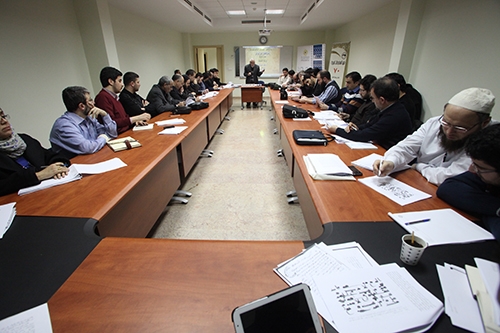
The first two days were devoted to the theoretical introductions. Dr. Faisal al-Hafyan outlined the manuscript structure and the editor’s ethics; Dr. Mahmoud Masri spoke on the history and culture of critical editing; Dr Fakhruddin Qabawah dealt with the theoretical basis of critical editing and the library of manuscript texts.
The following five days were devoted to editorial activity and its practical aspects. Dr Mahmoud Masri spoke on choosing the text and the search for manuscript copies; Dr. Faisal al-Hafyan spoke on text verification; Dr. Mortada Badr on textual criticism; Dr.Hassan al-Uthman on the discovery of the text and its edition; Dr. Bashar Awwad Ma’rouf on collation of copies, the footnotes and the appendices; and Dr. Ahmed Abdul-Basit on the study of the text. Professors Fakhruddin Qabawah, Murtada Badr, Ramadan Sesen, Hassan Ali Uthman and Ahmed Abdul-Basit participated all in the practical sessions.
The last three days were allocated to workshops, involving contributions from professors Khaled Fahmy, Fakhruddin Qabawah, Mahmoud Masri, Ahmed Abdul-Basit and Faisal al-Hafyan.
Participation certificates were presented out to the attending researchers and certificates of gratitude to the organisers, during the closing ceremony.


